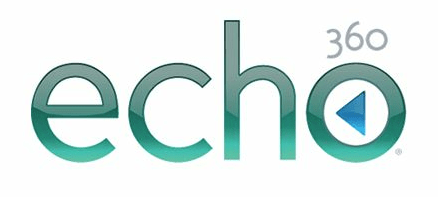As the old school gives way to the new, technology has begun to play an increasingly active role in the learning process — from primary to higher education. This has given rise to “blended learning,” or the strategic blending of face-to-face instruction with learning environments mediated by technology — be that by way of digital textbooks, video, learning management systems, social networking, and more.
Another enabler of this shift to blended learning comes in the shape of “lecture capture” solutions, which allow educational institutions to convert their professors’ lectures into digital media so that students can later have access to that content, on desktops and mobile devices. Last week, The Washington Post reported that one of the leaders in this area of blended learning, the Washington D.C.-based Echo360, had taken on a big chunk of capital to fuel an ambitious mission to “reach 50 percent of U.S. college students in the next five years,” said CEO Fred Singer.
Today, the four-year-old company already has 1 million students using its blended learning solutions in over 6,000 classrooms and 500 institutions, owns 54 percent of its market, and is seeing annual revenue of $15 million. Of course, all told Echo360 is only currently serving about 10 percent of the colleges and universities in the U.S., and, on top of that, its leadership sees big opportunities abroad.
Now, thanks to a big investment from some familiar names, Echo360 is looking to step on the accelerator. The investment comes from the $450 million Revolution Growth fund, founded by Steve Case, Ted Leonsis, and Donn Davis — all well-known entrepreneurs and executives in their own right and each a veteran of Aol leadership. (Case being a co-founder.) The fund, which typically makes $25 to $50 million investments in companies that it can help take “from niche to mass and scale to capitalize on huge market opportunities,” (i.e. disrupt big industries) sank $25 million into Vienna-based online auction company, FedBid, in January.
Yet, considering both the fund and Echo360 are located in Washington, and the startup’s CEO Fred Singer worked under Case and Leonsis at Aol as a lieutenant, the fund’s third investment was a bit closer to home. Although the Washington Post initially reported the funding, it wasn’t clear just how much Revolution Growth had invested.
But, with a little digging into the SEC’s filings, we’ve learned that the fund put up just under $31 million to become the startup’s largest shareholder, adding to the some $33 million Echo360 has raised since 2010. As a result of the investment, Donn Davis will be joining the startup’s board of directors.
 So, beyond a familiar leader in Singer, what is it about Echo360 that attracted this sizable investment? Well, the company started out as a type of TiVo for the classroom, meaning that its core lecture capture product records classroom video and audio, converting them into digital modules that can be accessed anywhere, on desktops, tablets, and mobile devices.
So, beyond a familiar leader in Singer, what is it about Echo360 that attracted this sizable investment? Well, the company started out as a type of TiVo for the classroom, meaning that its core lecture capture product records classroom video and audio, converting them into digital modules that can be accessed anywhere, on desktops, tablets, and mobile devices.
The idea being to make any and all educational material more accessible to students, so that they can, for example, view missed classes, take advantage of special, personalized instruction, or use videos as study guides. But the team also realized that its solution can be of great use to teachers, and it has since added features that allow educators to create their own learning modules, screencasts, and tutorials, or can edit and publish their own rich media objects to their students — while working offline.
Plus, they can take advantage of video viewing stats, analytics, and courses in one hub, which translates not only into asynchronous feedback for the professor, but starts to give Echo360 a tighter grip on the entire blended learning environment.
While Khan Academy has done wonders for the so-called “flipped classroom,” Echo360 wants to use these supplementary features to expand the role of blended learning in the classroom, and engage students on their own terms by encouraging educators to design their approach to teaching based on what aspects of the learning process can be improved with video, what should be learned during class time and what should be learned outside of it.
The cost to the institution? Echo360 licenses its software to schools in annual contracts that range from $20K to $200K, depending on the size of the school, which works out to an average cost for students of about $15 per year. It’s an affordable price for higher ed institutions, the low hanging fruit for flipped classroom and blended learning solutions, but one that becomes a much higher barrier to entry for primary schools and high schools — one that Echo360 may want to enter eventually.
In the meantime, there is plenty of room for blended learning platforms that can play nicely with learning management systems to grow into goliaths and help push education forward. The other lecture capture players like Panopto, MediaSite, Tegrity certainly won’t be sitting back on their heels, and hopefully the competition means a better learning experience for all. And, hey, Steve Case is excited about it:
“Technology has had a transformative impact on many facets of our lives – but the one major area where we have failed to leverage technology to its potential is in education,” Case said via Echo’s blog. “Echo360 empowers universities and colleges to enhance and extend the classroom experience to bring a much needed revolution to higher-education. Blended learning really is about marrying the best of online with the best of in-person, and that is what Echo enables.”
For more on Revolution Growth, check ’em out here, and find more on Echo360 here.

